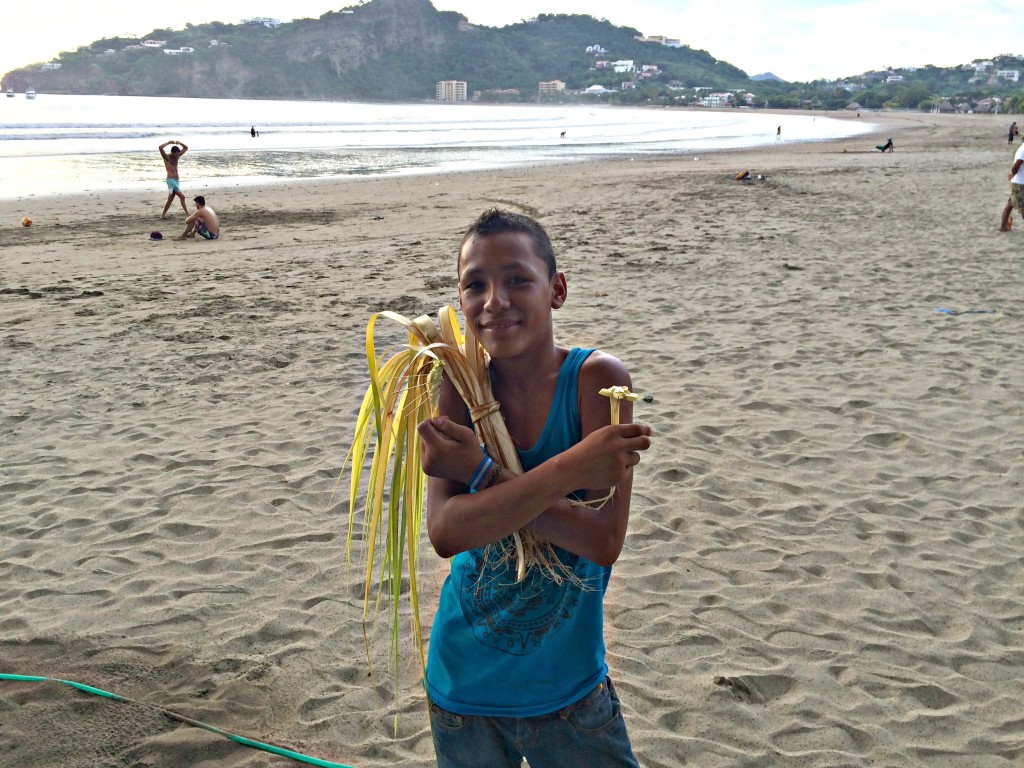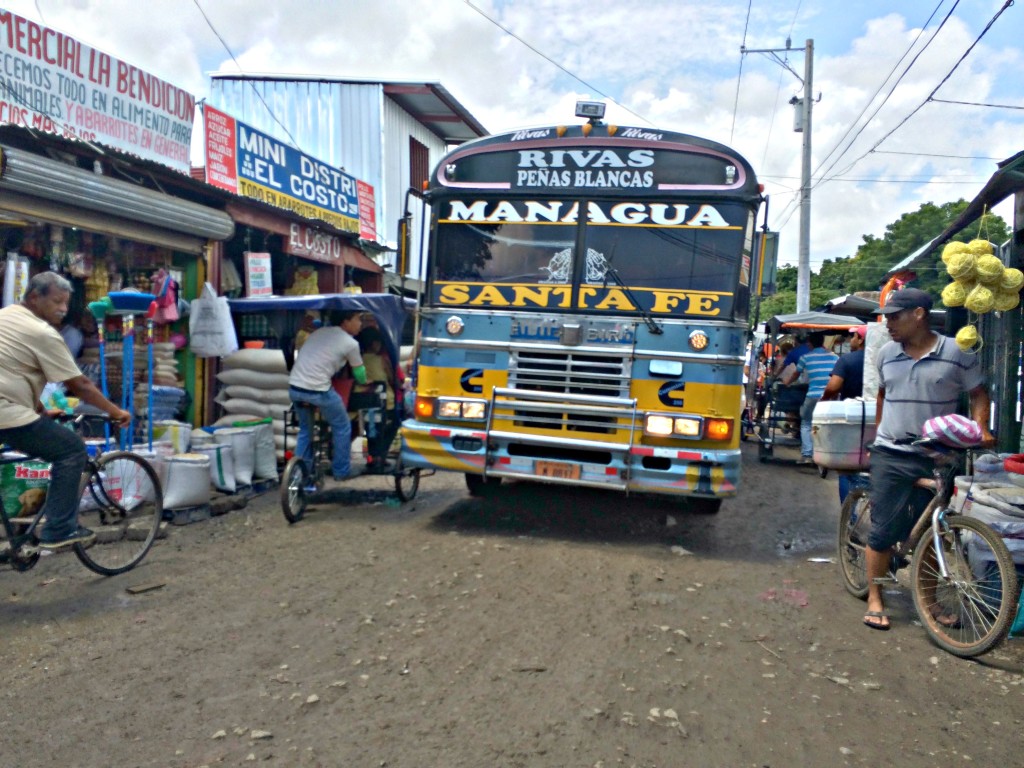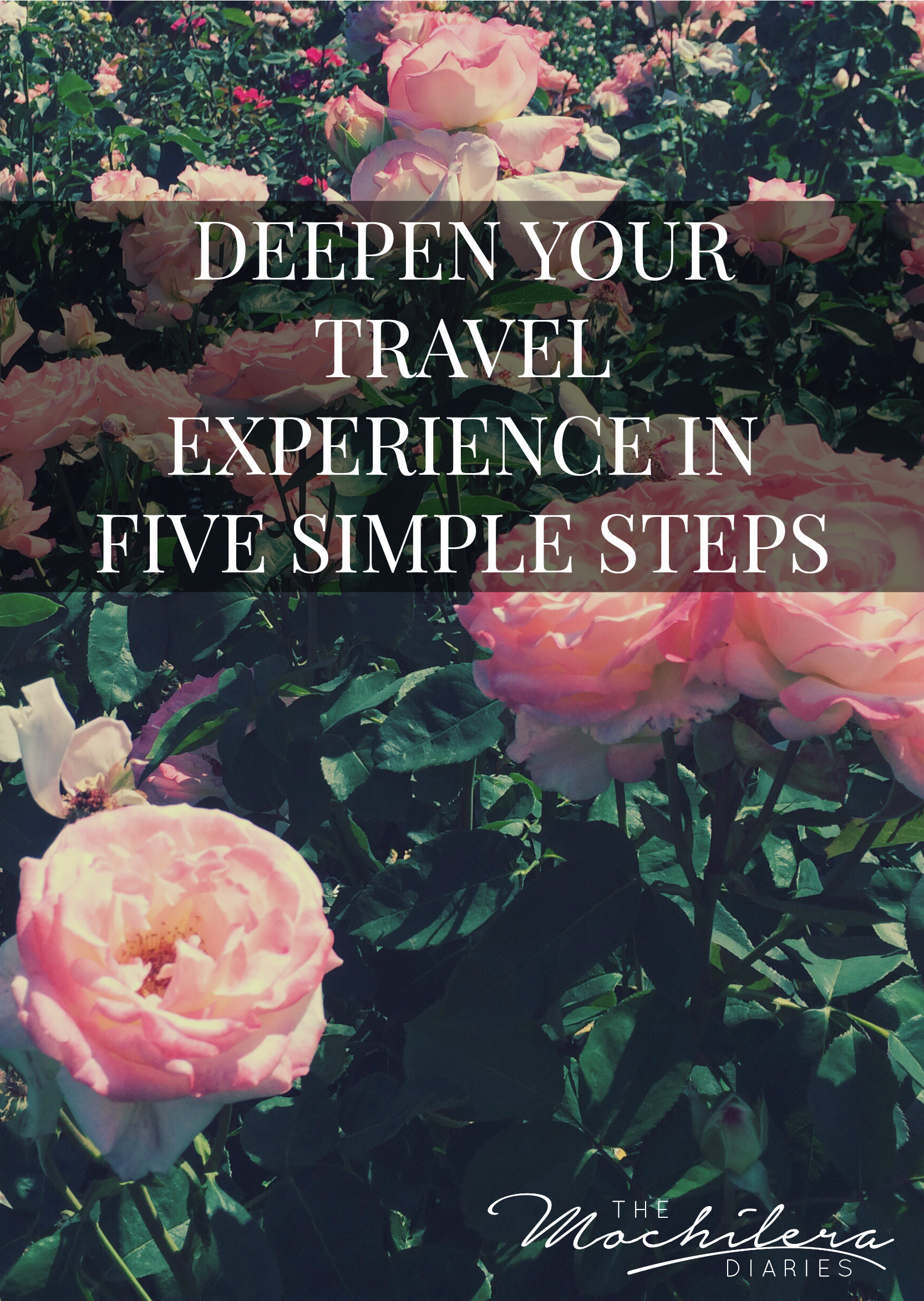It’s time for a dose of brutal honesty, are you ready for it?
Not all travel is equal.
There, I said it!
The never-ending buzz within the travel industry regarding whether there is actually a difference between a tourist and a traveler has led me to consider the distinction carefully myself, and I’m afraid I have to jump on board with the camp that believes yes, there is a difference.
As an aside, I’m not typically one to set New Year’s resolutions. I’m generally of the opinion that they are pretty pointless unless you actually plan to act on them and not revert back to your former self as soon as adversity rears its ugly head. I am one to set goals, however. To me, having a goal implies also having actionable steps to take toward achieving that goal, making it much more likely to be accomplished.
As the new year settles upon us and I’m barraged with articles about “travel resolutions,” I’ve realized I do have travel-related goals for 2015 that have nothing to do with adding more stamps to my passport or ticking items off an arbitrary “bucket list.”
Quite simply, I want to be better at this thing called travel. I want it to mean more. I want to look back on my travel-filled 20s and know that I did everything in my power to be present and that I didn’t coast through these experiences half asleep. Especially when living as an expat in one place for awhile, its easy to forget that every new day brings with it myriad opportunities for personal growth and discovery.
Ok, back to my main point.
In the literal sense of the word, everyone is a traveler. So long as you are going to new locations, you are, by definition, a traveler–it’s your actions upon reaching your new destination that determine if you are a tourist.
The Tourist
The tourist sees what he is supposed to see. The tourist arrives in a place knowing little about it and leaves knowing little more. The tourist takes others’ opinions at face value and follows the masses. The tourist may visit a site of great significance for the sake of photographic evidence of his great adventure, but he doesn’t interact with it, doesn’t absorb its meaning, is not moved by its grandeur, beauty or history. He has little regard for local customs and acts just as he would in his home country, as if his surroundings are static and his actions have no impact on them whatsoever.
The Traveler
The traveler seeks to understand. The traveler is perpetually curious and constantly questioning. The traveler wants to know locals, to interact fully with his surroundings, to absorb the energy of a place he is visiting. He diverges from the masses in search of intimate details and stories. The traveler is deeply moved by every place he visits. He leaves with a better understanding of it than when he arrived. He is reverent toward the local code of ethics and conducts himself in a way that reflects this.
Deepen your experience. Be a traveler.
My intention is not to imply that not all travel is important, because it is. Even the tourist can’t escape the little life lessons that travel imposes upon him; some type of personal growth is inevitable, even if the changes are small or imperceptible at first.
In order to create truly meaningful experiences, however, we must aim to be more like the traveler. This is an art I have not yet perfected myself, but among my goals for 2015 is to implement the steps I’m about to outline. If this is all new to you it may be quite uncomfortable at first, but it does get easier with practice.
To deepen your travel experience and be a traveler, not a tourist, follow these five simple steps.
1. Unplug.
Step away from the computer. Log out of your social media accounts. Be present. Not everything you experience is worth sharing, but everything you experience is worth appreciating in real time. Notice the sights, the smells, the sounds, and the life happening all around you. Walk down the street with your head up, not glued to a mobile screen.

2. Engage with locals.
Be curious. Ask questions. Start conversations. Not everyone will want to talk to you, but many will. Vendors and service people make perfect targets–talking to you is part of their job. Ask about their culture, ask about their personal experiences, ask about anything under the sun. Everyone has something to teach you; it’s amazing how much you can learn even in the briefest encounters. Don’t expect to make friends for life. The important part is simply taking the time to listen.

3. Try everything once.
This is easier said than done, but challenging yourself to be open-minded may lead you to discover that you love things you always assumed you would hate. So long as an experience doesn’t conflict with your personal morals, everything is worth trying at least once. If you hate it, you hate it–but at least you know for sure.

4. Get off the beaten path.
There’s nothing wrong with visiting popular sites or attractions, but discovering the things that not everyone sees will make your experience feel one-of-a-kind. Sure, toss a coin into Trevi Fountain when in Rome, but then get wonderfully lost down a back alley and create an experience that is uniquely your own.

5. Document the details.
Take photographs. Keep a journal. Blog about your trip. Whatever form your documentation takes, be diligent about it. Even if it’s purely for personal reference, you’ll be happy to have more to rely on when it’s all over than just fuzzy memories. You’ll be able to tell more interesting and engaging stories as well if, for instance, you can remember your tour guide’s name and a few personal details about him or her or the name of the painting you fell madly in love with at the local museum.

This year, my aim is to improve on all of these points. I want to absorb as much as possible from the world around me, even on the days when I just can’t be bothered. I encourage you to set the same goal for yourself. Travel smarter. Travel more meaningfully. Make it count.
Do you agree that there’s a difference between a tourist and a traveler? If so, what else sets the two apart? If you don’t agree, I would also love to hear your thoughts.



